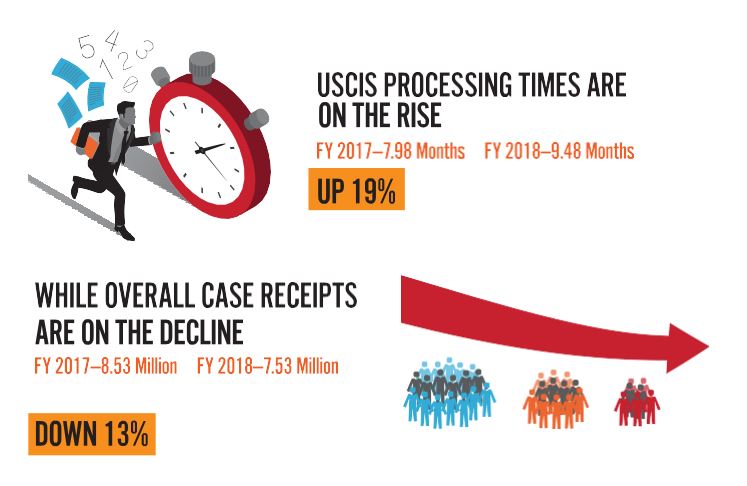Why Hasn’t Your Case Been Decided Yet?
Nationwide, you and millions of families, businesses, and people applying for humanitarian relief are waiting longer for U.S. Citizenship and Immigration Services (USCIS) to process and approve your applications and petitions.
Five years ago, an average case was taking about five months to process. By Fiscal Year (FY) 2018, that same applicant waited nearly 10 months. Those extra months of waiting halt business operations, keep families separated, and jeopardize people’s lives.
Who Is Affected?
You and other people applying for family-based benefits, employment-based benefits, naturalization, travel documents, and employment authorization are all experiencing delays. In FY2018, a staggering 94 percent of all immigration petitions and application form types took longer to process when compared to FY2014.
Why Are Cases Taking Longer?
Many factors can slow down your case. New policies at USCIS are restricting legal immigration. For example, one policy requires USCIS officers to conduct duplicate reviews of past decisions, adding unnecessary work to each case.
Such inefficient policies help explain why processing times are increasing even as USCIS application rates are decreasing.
Recent USCIS data shows that USCIS’s average processing time rose by 19 percent from FY2017 to FY2018, even while overall numbers of case receipts declined by 13 percentduring that same period.
Congress intended USCIS to function as a service-oriented agency on behalf of the American people. But the agency is failing its mission with unacceptably and increasingly slow case processing.
What Can I Do?
- Make sure your lawyer has your updated contact information
- Talk to your lawyer about your expectations for processing your case. your lawyer can guide you and help you plan for any delays.
- Learn more on AILA’s website. Go now to: www.AILA.org/USCIS
- Hold USCIS accountable by acting NOW: www.AILA.org/TakeAction















